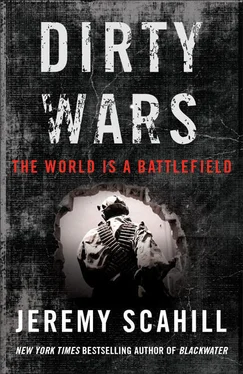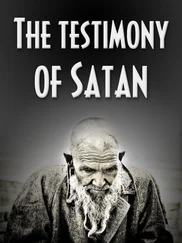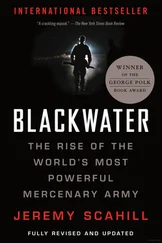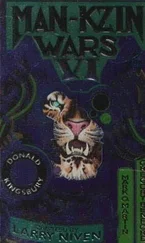
12. “Never Trust a Nonbeliever”
THE UNITED KINGDOM, 2003—As the Iraq invasion was quickly transforming into an occupation, Anwar Awlaki returned to Yemen, but there, his father persuaded him to give Britain another shot. Anwar left his family in his parents’ care and returned to the United Kingdom, where he would remain for almost two more years, often preaching at well-known mosques. Among Awlaki’s sponsors were the Muslim Association of Britain and the Federation of Student Islamic Societies, both of which had strong ties to the global Muslim Brotherhood organization. His partnership with these organizations is likely to have been one of expediency, noted researcher Alexander Meleagrou-Hitchens, who conducted an extensive historical study of Awlaki’s life, “whereby they sought to co-opt a charismatic young preacher in order to help them gain influence among Western Muslims, and in return, they opened up to him the benefits of their considerable organizational capacities, providing Awlaki with ready-made large audiences and venues.” Awlaki went on a speaking tour across Britain in 2003, lecturing at prominent universities and colleges and community organizations on the “war against Islam” and the role of Muslims in the Western world. “His popularity in the West was now at its peak, and he drew in large crowds,” according to Meleagrou-Hitchens. Dr. Usama Hasan, the former imam of the Tawheed Mosque in Leyton, North London, said that Awlaki had become “one of the icons of Western Salafism and would pack out every venue he spoke at. People were excited to see him.”
Awlaki continued to spread his message and, though many of his speeches focused on religious teachings or making modern analogies to Muhammad and other prophets, his politics were clearly growing more militant. His sermons resonated with young people who were coming of age in an era where they perceived their religion as being demonized. “There is a global culture that is being forced down the throats of everyone on the face of the earth. This global culture is protected and promoted. Thomas Friedman, he is a famous writer in the US, he writes for the New York Times . He says the hidden hand of the market cannot survive without the hidden fist. McDonald’s will never flourish without McDonnell Douglas—the designer of F-15s,” Awlaki said in one sermon. “In other words, we are not really dealing with a global culture that is benign or compassionate. This is a culture that gives you no choice. Either accept McDonald’s, otherwise McDonnell Douglas will send their F-15s above your head. It is very intolerant culture that cannot coexist with anything else. It uproots every other culture on the face of the earth. Just cuts the roots of it. And you have a quote here by [Russian historian and Soviet dissident] Alexander Solzhenitsyn…‘To destroy a people, you must sever their roots.’ And the only ideology that is standing up to this global culture is Islam.” Awlaki decried the reality he perceived among young Western Muslims, that they
have more in common with the rock star or a soccer player than they would have with the companions of Rasool Allah [the prophet Muhammad]. You would find that our youth know more about pop stars than they know about the Sahaba [companions] of Rasool. In fact even sometimes more than the Anbiya [Prophets]. How many of our youth know the names of all of the Anbiya of Allah? How many of our youth know the names of the Sahaba? But ask the same person to name the soccer players on their favorite team or their best basketball players and they would go down the list. So there is a serious identity crisis that is going on among Muslims.
Awlaki would weave in pop cultural references with stories from the Koran. He railed against the corporate media and international human rights organizations, which he denounced as propagandists for those who were “plotting to kill” Islam. In London, Awlaki delivered a speech in which he warned young Muslims not to be taken in by the perceived kindness of their non-Muslim neighbors or friends. “The important lesson to learn here is never, ever trust a kuffar [a nonbeliever]. Do not trust him. Now, you might argue and say, ‘But my neighbor is such a nice person, my classmates are very nice. My coworkers, they are just fabulous people, they’re so decent and honest. And, you know, the only problem is that we Muslims are giving Islam a bad name. If these terrorists would just stop what they’re doing,’” Awlaki said. “Now, I’m not going to argue that your neighbor is not a nice person. Or your classmate. They truly might be decent and nice people. But, brothers,” he added, “this person that you know is not the one calling the shots. And when the Quran talks about” the nonbelievers, “it talks about the leaders,” those who “are pulling the strings. Don’t make a judgment” based “on Jane Doe and John Doe. You don’t make it based on Joe Six-Pack or Sally Soccer Mom.” The nonbelievers, he said, were intent on destroying Islam. “We need to wisen up and not be duped,” he told the rapt audience. “Malcolm X used to say, ‘We’ve been bamboozled.’”
Awlaki spoke frequently of the harassment and detention of Muslims across the globe, from Guantánamo to London to Virginia and beyond. He implored his followers to see their struggles in the West as the same as those in Muslim countries. “We are watching one Muslim nation fall after another, and we are watching, sitting back, doing nothing. When Palestine was taken, we did nothing,” he boomed at a sermon in London as part of an event called “Stop Police Terror.” “The Ummah [the global Muslim community] is watching while Iraq is being devoured. It’s not going to end there, because it will spill over to other countries like Syria and only Allah knows who is next.” He added, “When we allow a Muslim nation to fall down, we have allowed the same thing to happen to every and each one of us.”
The December 2003 lecture was organized as part of a series of events in Britain opposing what the Muslim community saw as a racist crackdown. Using antiterror laws similar to the PATRIOT Act in the United States, British security forces began a campaign of mass arrests of Muslims—many of them students—on suspicion of involvement with terror plots. “We are arresting people continuously,” Britain’s top police official, John Stevens, declared. “It is part of this massive effort we have been having since 11th September. And it will continue.” It was against this backdrop that Awlaki told his audience, “Many Muslims have been arrested. You know when you talk about Guantánamo Bay and all that stuff; there is a Guantánamo Bay in this country. There were 524 Muslims who were arrested under the new laws and only 2 of them have been charged. You have over 520 Muslims who are locked up in jail, and are left to rot in there, and there’s no crime—they have not committed anything and there are no charges brought against them. They are left there for months at end, to just rot in those prison cells. What have you done for them?” He called his followers to action. “We just sit there watching and doing nothing. Thinking by ducking down and by being quiet, we will be safe. If you don’t stop it now, it’s gonna happen to you, it might happen to your wife, it might happen to your own daughter. You need to stop it in its tracks before it grows…. So you need to do whatever you are capable of doing. This is a responsibility—it’s hanging on your neck. It is something that you owe to your Muslim brothers, you owe it to the Ummah and you owe it to Allah.”
In London, Awlaki’s sermons became more political, condemning the wars in Muslim countries and the detention of Muslims in the West. Guantánamo and the US torture program clearly had a major impact on him. “He became a social figure, you see,” recalled his father. Although many of his earlier sermons were apolitical and focused on the lives of the prophets and Koranic interpretation, Anwar had become a political activist. “Anwar, in all his lectures, tried to connect them with something modern that was happening,” Nasser said.
Читать дальше













